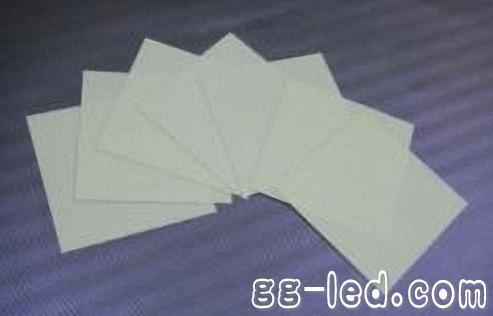A research team at Xiamen University has solved the key problem of "light extraction efficiency" that restricts the wider application of this light-emitting device by covering an ultra-thin aluminum film on the surface of high-aluminum nitride deep ultraviolet light-emitting diodes. These devices open up new methods and ideas in the industrial application of medical, environmental, military and other fields.
After a few years of research, the research group under the research group of the College of Physics and Mechanical Engineering of Xiamen University, Huang Kai, an associate professor of the research group, and Gao Na, a doctoral student, solved this problem by borrowing an ultra-thin aluminum film. When a surface of a deep ultraviolet light-emitting diode is coated with an ultra-thin aluminum film of only 5 nanometers, this aluminum film not only does not reflect the light emitted by the device more like a conventional mirror, but subtly turns the device toward The light emitted from the side is collected, passes through the aluminum film layer, and is emitted from the front side, thereby achieving an improvement in light extraction efficiency.
Huang Kai explained that this is because when the aluminum film is made very thin, the nano-effects make it different from the traditional mirror to reflect the light back, but concentrate the absorption to achieve light collection and frontal emission.
Tests have shown that the contribution of this layer of aluminum "outerwear" to the light extraction efficiency of UV LEDs will vary with wavelength. In general, the shorter the wavelength, the higher the efficiency. The data shows that the same is applied to the aluminum film, the ultraviolet light-emitting diode with a wavelength of about 310 nm, the light extraction efficiency can be improved by about 20%; the ultraviolet light-emitting diode with a wavelength of about 290 nm can increase the light extraction efficiency by about 50%; For deep UV LEDs with a wavelength of approximately 280 nm, the light extraction efficiency can be increased by 130%.
After a few years of research, the research group under the research group of the College of Physics and Mechanical Engineering of Xiamen University, Huang Kai, an associate professor of the research group, and Gao Na, a doctoral student, solved this problem by borrowing an ultra-thin aluminum film. When a surface of a deep ultraviolet light-emitting diode is coated with an ultra-thin aluminum film of only 5 nanometers, this aluminum film not only does not reflect the light emitted by the device more like a conventional mirror, but subtly turns the device toward The light emitted from the side is collected, passes through the aluminum film layer, and is emitted from the front side, thereby achieving an improvement in light extraction efficiency.

Huang Kai explained that this is because when the aluminum film is made very thin, the nano-effects make it different from the traditional mirror to reflect the light back, but concentrate the absorption to achieve light collection and frontal emission.
Tests have shown that the contribution of this layer of aluminum "outerwear" to the light extraction efficiency of UV LEDs will vary with wavelength. In general, the shorter the wavelength, the higher the efficiency. The data shows that the same is applied to the aluminum film, the ultraviolet light-emitting diode with a wavelength of about 310 nm, the light extraction efficiency can be improved by about 20%; the ultraviolet light-emitting diode with a wavelength of about 290 nm can increase the light extraction efficiency by about 50%; For deep UV LEDs with a wavelength of approximately 280 nm, the light extraction efficiency can be increased by 130%.

Dc Servo Motor,Linear Servo Motor,High Torque Servo Motor,Servo Linear Actuator
Zhejiang Synmot Electrical Technology Co., Ltd , https://www.synmot-electrical.com